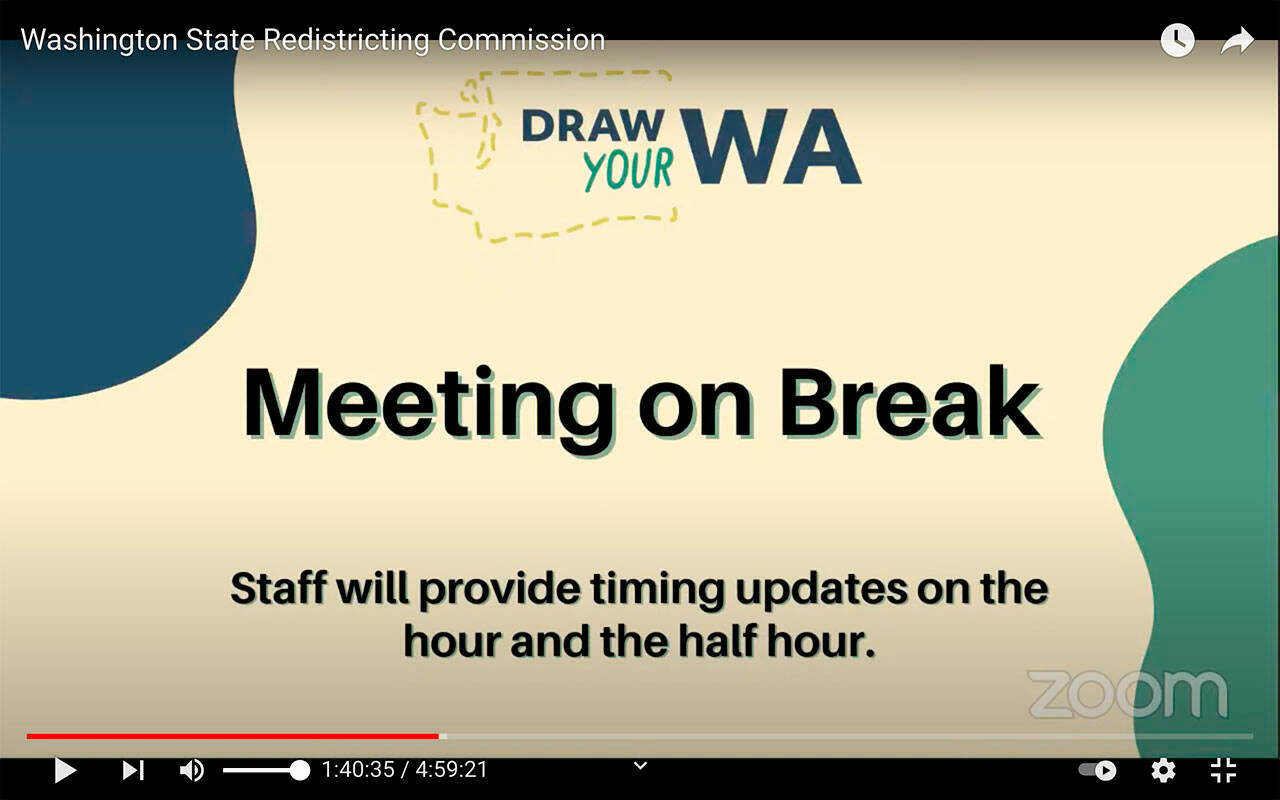By The Herald Editorial Board
Washington state’s once-a-decade process of redistricting — redrawing the boundaries of congressional and legislative districts to take population changes into account — has proved to be a lot like Winston Churchill’s definition of democracy: “the worst form of government except for all those other forms that have been tried from time to time.”
What the state’s five-member redistricting commission — comprised of two representatives from each major party, Democratic and Republican, and a nonpartisan and nonvoting chair — accomplished late last year were two sets of maps that the four members agreed upon and were largely acceptable to both parties. Allowed the opportunity to make minor changes, state lawmakers made a few tweaks around the edges and set the stage for upcoming races for the state Legislature and the U.S. House of Representatives that will launch in May with candidates filing for office.
It’s a result far better than seen elsewhere with states’ attempts to redraw boundaries following the release of data from the 2020 census. As of last week, the Brennan Center for Justice reported that 50 lawsuits have been filed challenging congressional and legislative maps in 19 states, alleging racially discriminatory or partisan gerrymanders or both, particularly where majority parties in state legislatures are in sole control of the pen that redraws the maps. Boundaries are now being redrawn under court order in Alaska, Ohio and North Carolina. And with elections looming, 30 cases remain pending; 20 in federal court and 10 in state courts.
While Washington state has largely avoided charges of partisan gerrymandering since its current bipartisan commission was first used following the 1990 census, it hasn’t escaped controversy or lawsuits after the 2020 census and the 2021 work of the redistricting commission, including one lawsuit listed by the Brennan Center, a challenge regarding Latino voters — citing the federal Voting Rights Act — over legislative boundaries in the Yakima Valley.
The other legal challenge isn’t alleging partisan gerrymandering but secret deal-making, done out of the public’s view. A complaint filed in December by the Washington Coalition for Open Government alleges that the commission’s members made numerous decisions about congressional and legislative district boundaries outside of sessions open to the public, as required by the state Open Public Meetings Act — and possibly did some horse-trading to allow a few state legislators to keep their districts — and did so after the state constitution’s Nov. 15 deadline to complete its work.
The commission’s work for much of the process last year was a model of public inclusion and participation, including numerous public outreach meetings, the commission’s regular meetings, public testimony and comments regarding map proposals and more.
That changed, however, at crunch time. Within hours of the midnight deadline on the evening of Nov. 15 — and with no news on final maps — all the public saw when logging into the commission’s remote meeting was a notice that the commission was “on break.”
Moments prior to the deadline, the commission announced it had reached agreement on both maps, but reportedly continued to meet after the deadline to make final decisions, again outside of public view and without an opportunity for comment. The maps themselves were not released until the next day, hours after the deadline.
If either suit prevails, the commission or the courts may have to draw the maps yet again, with the clock ticking toward filing for office and a lack of clarity as to which district a potential candidate lives.
For all its success in avoiding partisan gerrymandering, the state’s redistricting commission is in need of reform. Two are under consideration in the Legislature:
Senate Bill 5597 would require pre-clearance to determine that changes to election law — including redistricting — would not violate the state Voting Rights Act. In the case of the commission, maps would have to be submitted for review by a court or the state Office of the Attorney General.
Senate Bill 5560 would put into writing what the commission should have understood as a given; that the public should have ample opportunity to review and comment on new maps and boundaries before final approval. The legislation, sponsored by Sen. Jamie Pedersen, D-Seattle, would require the maps be made available at least 72 hours before approval; that debate and a vote for approval of the maps happen in open session; and that at least 24 hours pass between an amendment and final approval.
Both bills have passed the Senate and are now under consideration in the House.
And both bills should be adopted into law to make our state’s less-worse system a little better. Still, more reform is needed.
One suggestion is to replace the commission’s four partisan members — one selected by each of the Legislature’s four party caucuses — with nonpartisan citizen appointees, a reform pursued by Redistricting Justice for Washington, whose members include the state League of Women Voters, FairVote Washington and groups representing environmental and racial equity efforts.
Such a reform would require amending the state constitution, which would have to be approved by voters and by two-thirds of state lawmakers, but that is the bar that was met in 1983 when the current system was established, and it’s one that the state now has nine years to accomplish.
Talk to us
> Give us your news tips.
> Send us a letter to the editor.
> More Herald contact information.

























